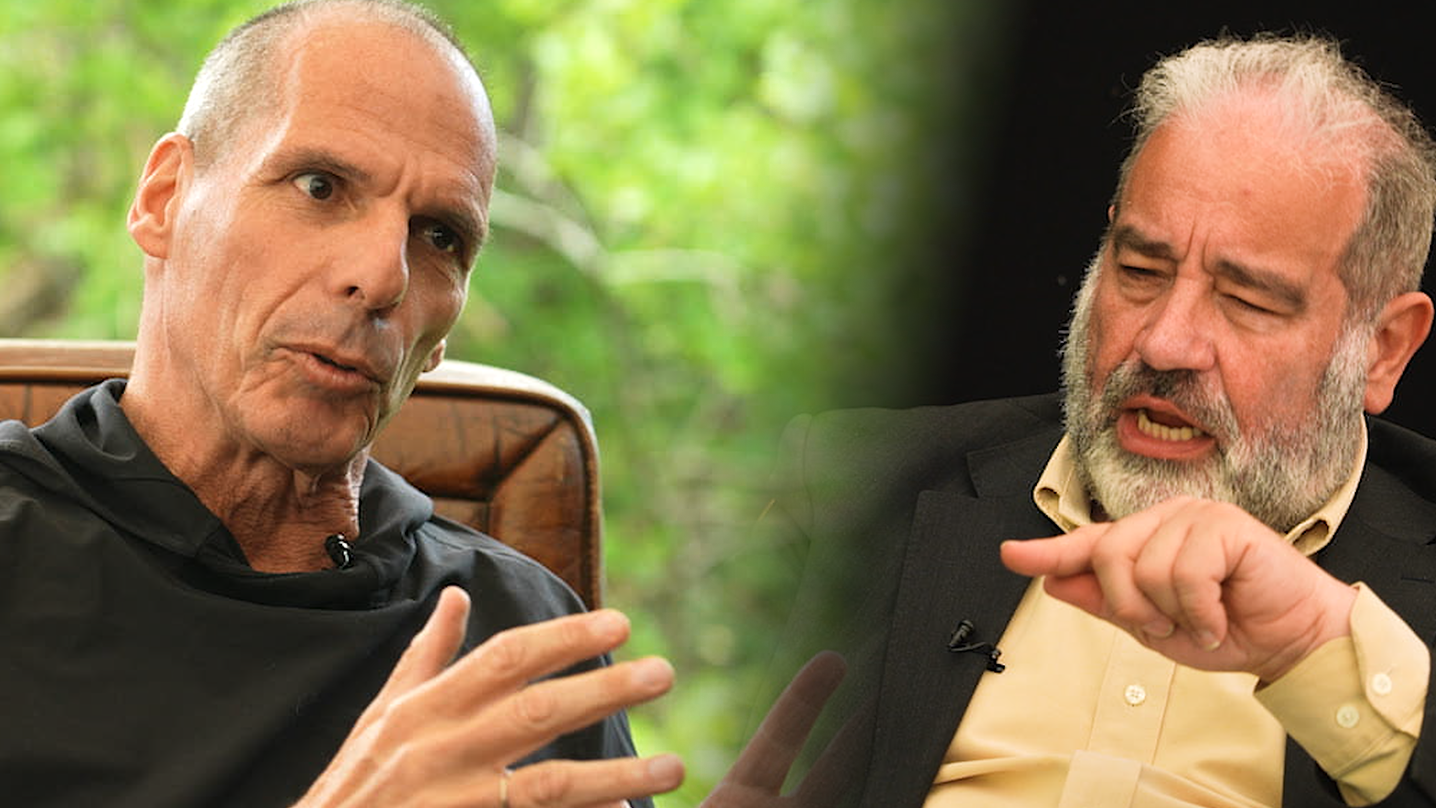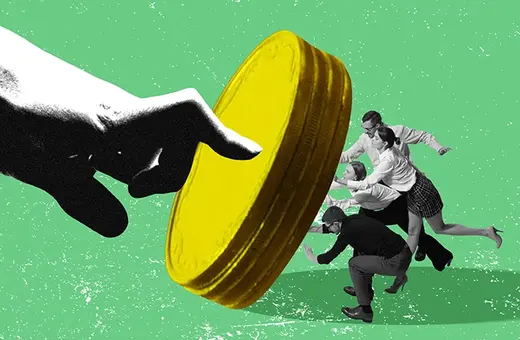The normal history of humanity is a relatively slow upward crawl in mortality, population and wealth, and with the advent of capitalism, and enormous upward spike in all measures of progress. But what if capitalism did not produce this spike in growth, and instead we've got the causality wrong? Samuel Miller McDonald argues that far from a driver of growth, capitalism used the veil of progress to justify the ravaging of the earth and corruption of anything done for anything apart from the all consuming growth imperative. Until we interrogate the history of growth and the turmoil it has spread along the way, we will be forever chasing an illusion that holds back societies and misses the true drivers of social progress.
Growth! That compounding increase in surpluses. The tasty profit icing that accrues glacially, layer by layer. The heavy fruit hanging off a neatly ordered orchard. The hectares cordoned off by state or corporate bureaucracies. Ledger numbers… “Growth” is a fundamental principle of capitalism, the blood on which capital feasts, the engine pumping ceaselessly at the core of the global economy. In countries where there is a particular fixation on growth, we must also mention “growthism.” That suffix denotes what we might call a meta-ideology, an orienting imperative for individuals, institutions, nations, and up, all the way to international organizations: it’s the unwavering faith that the most vital mission of any group of people is, must ever be, above all else, the delivery of new returns higher than the last. The figures must ever swell, the line infinitely ascend.
SUGGESTED VIEWING Yanis Varoufakis on the end of capitalism With Yanis Varoufakis, Roger Hearing
The conventional story of capitalism tells how this one invention—capital—and its pathways of distribution, forged by the wily hands of Early Modern merchants in the Mediterranean, and stirred into being in the alchemical caldrons of European Enlightenment thought in the half millennium between the 14th and 19th centuries, brought about the birth of economic growth and ideological growthism, and all the fruits, nourishing or rotten, that have followed this political-economic process and cultural imperative. And now, in the end of history, capitalism remains the magical, invisible hand that sustains perpetual annual economic growth.
This story is false. Capitalism did not birth growth and growthism. The tellers have got the narrative causation backward. Growth came first, and from it came this particular sort of accounting logic we now call, for the sake of argument, capitalism.
___
The first city-states and empires in history, like Uruk and Babylon, built factories of textile manufacturing, mined voraciously, deforested to exhaustion for lumber, and stole spoils in conquest, which they traded in long supply chains throughout the region.
___
During the Viking Age, between 793 and around 1050 CE, Norse settlers went about the world plundering whatever places they could find within marching distance of a seacoast or riverbank. Their far-reaching raids are legend. One of their farthest-sailed settlements was in Greenland, and one thing that sent them there was lust for market-derived profit. In the 10th century, the Norse were important merchants in a broad-spanning transcontinental economy. They were particularly interested in walrus ivory, a highly sought-after commodity in this economy. They were so effective at extracting it that they collapsed walrus populations around Iceland and so moved on to Greenland to take more, before they collapsed populations there as well. After initiating bloody conflict with their Inuit neighbors, the Greenland Norse themselves faced collapse, due in part to their overexploitation of local resources for the sake of profit and growth.






















Join the conversation